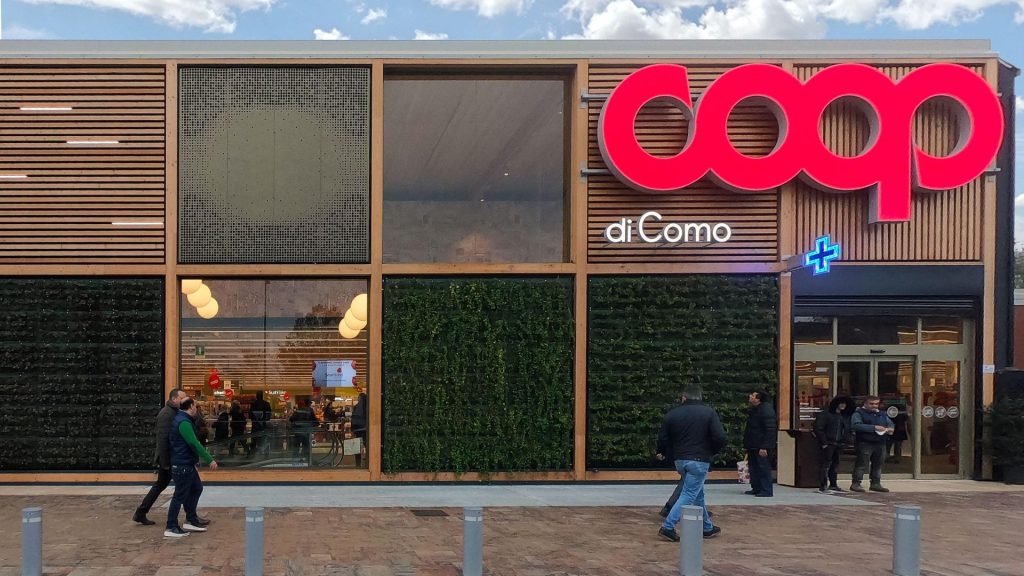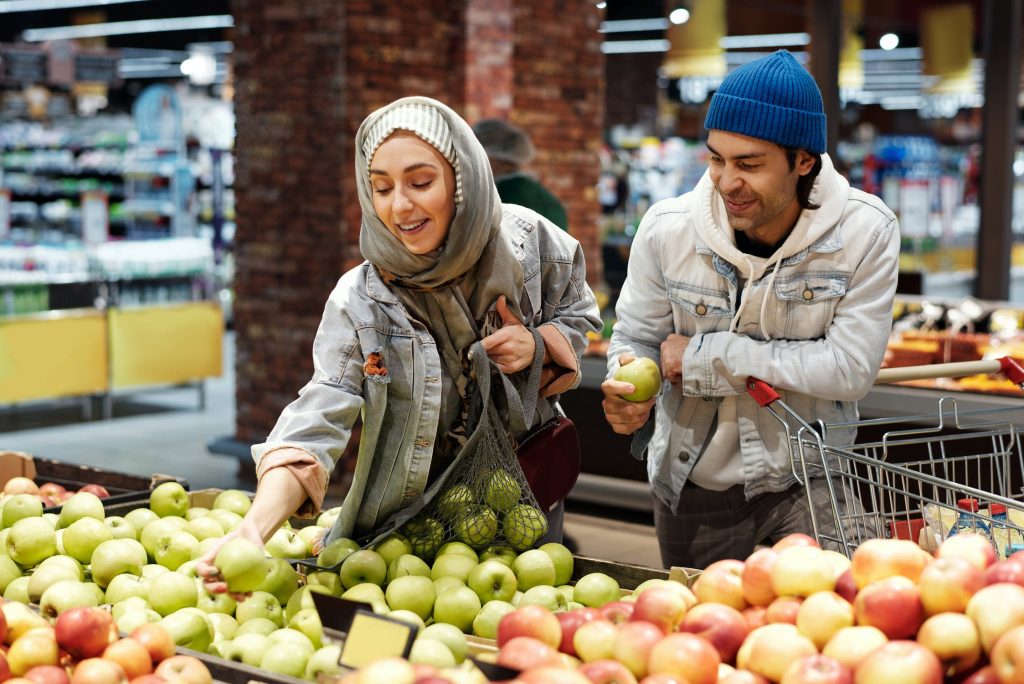Coop is the largest Italian consumer cooperative and one of the largest in Europe. With nearly 400 stores, over 19,000 people employed, and 2.3 million members, it stands out from its competitors in large-scale distribution for its attention to issues such as sustainability, social commitment and respect for the territory.

Commitment to sustainability
The Coop Alleanza 3.0 multi-year sustainability plan aligns the strategic objectives of the Cooperative with the 17 Global Goals set out in the UN 2030 Agenda.
The Sustainability Plan revolves around four major areas, which closely concern the Cooperative’s activities:
- protection of intergenerational heritage
- sustainable production and consumption
- fair distribution of resources
- opportunity generation
Sustainability is concerned on several levels, starting with communication: the promotion and dissemination of sustainable development begins with awareness. For this reason, Coop has increased its communication initiatives to inform shareholders, consumers and workers, in order to achieve an assumption of common responsibility, with the aim of creating an ethical and sustainable consumption model. There are many tools in place: training courses, initiatives (such as those of education for conscious consumption aimed at students) free dedicated webinars.
Coop is also committed to promoting and pursuing sustainable finance, consistent with cooperative ethics. In fact, starting from 2021, many investments have been analyzed in terms of sustainability, as well as cost-effectiveness and yield. This was possible through the evaluation of specific parameters: environmental, social, governance, in short ESG.
The message can reach over 2 million members, who could thus adopt greener lifestyles. For this reason, marketing actions such as the collection of points and collection initiatives will also be increasingly oriented towards a sustainable perspective.

Reduction of waste
Another fundamental issue is that of reducing the waste of food and goods, so as to reduce the production of waste. There are numerous anti-waste initiatives, contained in the “Buon fine” project. An example. Products with this label are discounted from 30 to 50%: because they are close to the expiration date) or because they have a small defect on the packaging. If the product is still unsold, it is given to associations.
The intent is to increase those circular economy actions. In this case, the best example is that of the recovery of industrial bread to produce grated bread or (however this is a pilot project) the recovery of coffee residues from bars.
In recent years, the plastic used for the packaging of fresh products and internal production has been significantly reduced. We opted for single-material casings, which can be easily differentiated. This was followed by a use of resized paper, printing only the strictly necessary material and promoting the digitization of documents, magazines and commercial flyers.
Responsible use of energy has not been neglected either. Interventions have been planned in the many points of sale making them much more efficient, and members and customers are given the opportunity to subscribe to domestic energy supplies from renewable sources.

The Coop product
Product is the maximum expression of Coop’s mission, helping to spread its values: environmental protection, enhancement of local products, transparency, respect for workers.
The intent is to give greater visibility to local supply chains and contribute to their development, generating value for the local economy, with the ultimate aim of offering consumers quality products. An example is that of fresh bread, which in many cases is the product of new local supply chains activated by Coop.
We read on the site:
An increasingly sustainable production and consumption also pass through the enhancement and the possibility of purchasing products which, starting from their realization, promote the legality, rights and well-being of workers. “
Examples are Solidal Coop products or “Buoni e Giusti” products, coming from critical supply chains; other significant productions are those of Libera Terra against the mafias, or the peeled tomatoes “Riaccolto” processed by the laborers of Ghetto Out Casa Sankara.
The enhancement of organic products is also central, as are the initiatives carried out at a national level to reduce the use of antibiotics in animal farms and the use of pesticides from Coop products. The hope is also that of opening the row, and encouraging the productive world to pay greater attention to more sustainable methods of cultivation and breeding.
Solidarity initiatives
The attention and care of the local communities are central elements for the Cooperative; to promote social inclusion and combat marginalization, numerous solidarity initiatives have thus taken place. Often developed in a network with local institutions and the third sector, they have made it possible to extend the cooperative mutuality also externally.
An example of this is the “L’unione fa la spesa” (“Union does the shopping”) project, created to allow people with frailty to receive their shopping at home during the lockdown, and confirmed as a permanent activity.





